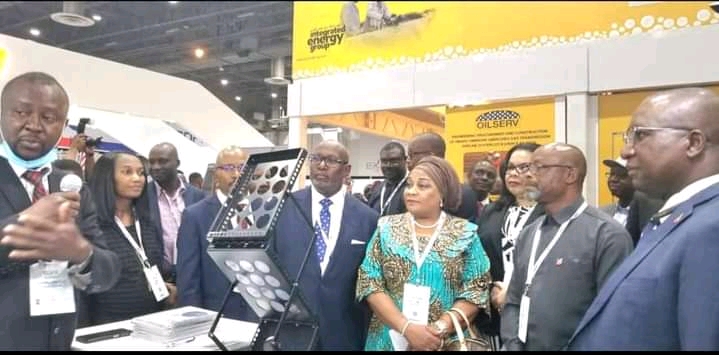Business
Excessive Importation Worsening Nigeria’s Unemployment – MAN

The Manufacturers Association of Nigeria (MAN) has said the recourse to imported produce by Nigerians has contributed significantly to the country’s current high unemployment rate.
President of the Association, Mansur Ahmed, stated this during the ‘Made-in-Nigeria exhibition’ which featured as a curtain raiser for the Annual General Meeting of the apex group for manufacturing business entities in the country.
He noted that the Executive Order 003 and 005, which indicate the commitment of the Federal Government of Nigeria to growing domestic production through the patronage of locally produced goods, should be closely monitored to ensure strict compliance with the order.
Ahmed said “In order to grow the economy, create jobs and increase contribution to government revenue, the manufacturing sector must be supported to scale production through increased capacity utilisation and adequate patronage.
“On our part, I want to assure you that the Manufacturers Association of Nigeria and the sector as a whole will rise to the occasion and ensure that it builds on the existing capacities and continue to improve on the quality and competitiveness of its product.
“Let me, therefore, welcome you and urge you to move around the exhibition ground and see the existence to which the manufacturing sector can meet the desire of Nigerians for a self-reliant economy.
“Indeed, given the size of the Nigerian market, achieving self reliance will not only strengthen and deepen our economy, it will position us to play a dominant role in continental market.”
Also addressing the gathering, a former President of MAN, Hassan Adamu, said it was imperative for Nigeria and Nigerians to support local produce.
He noted that made-in-Nigeria products remained a crucial component of the economy as it currently provides employment opportunities for millions of Nigerians.
Adamu also urged Nigerians to reduce patronage of foreign goods and support locally made goods.
Business
PENGASSAN Tasks Multinationals On Workers’ Salary Increase

Business
SEC Unveils Digital Regulatory Hub To Boost Oversight Across Financial Markets

Business
NAFDAC Decries Circulation Of Prohibited Food Items In markets …….Orders Vendors’ Immediate Cessation Of Dealings With Products

Importers, market traders, and supermarket operators have therefore, been directed to immediately cease all dealings in these items and to notify their supply chain partners to halt transactions involving prohibited products.
The agency emphasized that failure to comply will attract strict enforcement measures, including seizure and destruction of goods, suspension or revocation of operational licences, and prosecution under relevant laws.
The statement said “The National Agency for Food and Drug Administration and Control (NAFDAC) has raised an alarm over the growing incidence of smuggling, sale, and distribution of regulated food products such as pasta, noodles, sugar, and tomato paste currently found in markets across the country.
“These products are expressly listed on the Federal Government’s Customs Prohibition List and are not permitted for importation”.
NAFDAC also called on other government bodies, including the Nigeria Customs Service, Nigeria Immigration Service(NIS) Standards Organisation of Nigeria (SON), Nigerian Ports Authority (NPA), Nigerian Maritime Administration and Safety Agency (NIMASA), Nigeria Shippers Council, and the Nigeria Agricultural Quarantine Service (NAQS), to collaborate in enforcing the ban on these unsafe products.
-

 Politics4 days ago
Politics4 days agoWhy Reno Omokri Should Be Dropped From Ambassadorial List – Arabambi
-

 Politics3 days ago
Politics3 days agoPDP Vows Legal Action Against Rivers Lawmakers Over Defection
-

 Sports3 days ago
Sports3 days agoNigeria, Egypt friendly Hold Dec 16
-

 Sports3 days ago
Sports3 days agoNSC hails S’Eagles Captain Troost-Ekong
-

 Oil & Energy3 days ago
Oil & Energy3 days agoNCDMB Unveils $100m Equity Investment Scheme, Says Nigerian Content Hits 61% In 2025 ………As Board Plans Technology Challenge, Research and Development Fair In 2026
-

 Politics3 days ago
Politics3 days agoRIVERS PEOPLE REACT AS 17 PDP STATE LAWMAKERS MOVE TO APC
-

 Politics3 days ago
Politics3 days agoWithdraw Ambassadorial List, It Lacks Federal Character, Ndume Tells Tinubu
-

 Sports3 days ago
Sports3 days agoMakinde becomes Nigeria’s youngest Karate black belt

